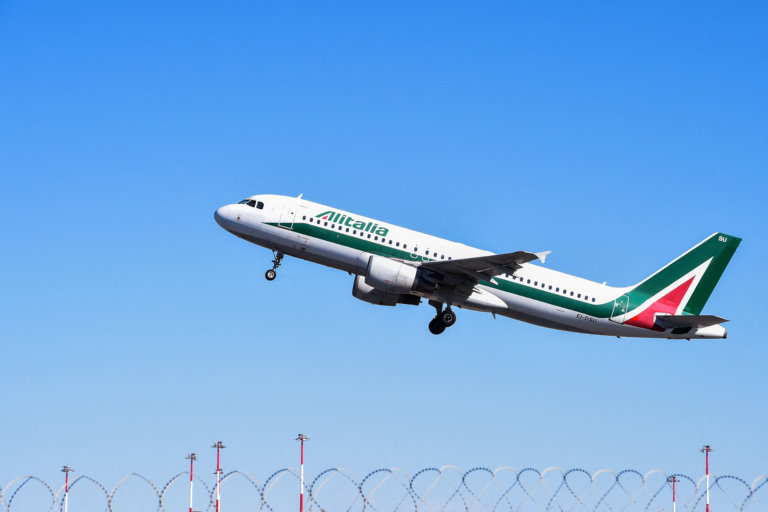
Travelling to Europe is now easier for international students following the EU Council’s recent announcement that recommends the removal of general COVID-19-based travel restrictions in favour of individual-based requirements.
The EU Council on Tuesday adopted a new recommendation for member states to determine the conditions of entry into their countries based on a traveller’s individual COVID-19 status. This is a contrast from current restrictions, which set requirements based on a traveller’s country of departure.
“This means that a traveller’s COVID-19 vaccination, test or recovery status, as evidenced by a valid EU digital COVID certificate, should be the key determinant,” said the Council in a press release. “A person-based approach will substantially simplify the applicable rules and will provide additional clarity and predictability to travellers.”
The recommendation will come into effect on Feb. 1, 2022. On the same day, EU member states will shorten the validity of vaccination certificates to a maximum of 270 days.
The WHO has additionally called for countries to revise their international travel bans, saying they “do not provide added value”.
As travel restrictions are rapidly changing, students should be made aware of the current regulations and conditions of entry, as well as quarantine requirements. Here’s a run-down of updates if you’re planning on travelling to Europe for your studies.

Some travellers will be checked by health authorities upon arrival. Source: Valery Hache/AFP
France
Guidelines for travel into France are still being updated. At the time of writing, the country requires travellers to abide by certain rules before, during, and after travel. This includes:
- Filling up the EU-PLF form for travellers arriving on the territory of an EU member state
- Filling up an Eos electronic form for those coming from “orange” or “red” countries and territories
- Providing a COVID certificate, which proves your vaccination status, a negative test results in less than 24 hours before travel, or recent recovery from the virus
- A sworn declaration to border/transport officials stating that you have no symptoms of COVID-19 and have not, to your knowledge, been in contact with a positive COVID-19 patient in your last 14 days before travel. This includes your agreement to be tested on arrival (the declaration template can be downloaded here)
You may also be required to quarantine upon arrival if you show symptoms of COVID-19, irregardless of the country you’re travelling from. Travellers from the UK are strictly required to quarantine for 10 days.
France might change their current guidelines after Feb. 1, 2022, in line with the EU Council’s recent recommendation. You can keep up to date with this here.
Germany
To travel into Germany, you must be fully vaccinated at least 14 days before your departure flight. Other requirements include:
- Carrying a digital certificate of your vaccination
- Showing a negative antigen or PCR test result that was taken within 48 hours of departure, or proof of recovery from COVID-19 no more than 90 days previously
Currently, travellers from high-risk areas or areas of a variant of concern will be required to self-isolate upon arrival for 10 days. If you have visited one of these countries in the last 10 days, you will need to register this information here.
Spain
To travel to Spain, you must meet requirements including:
- Have had your final vaccination dose administered within 270 days prior to your travel to Spain
- Fill out and sign a Health Control Form which you must show upon arrival
- Show a negative diagnostic test (sample collection) that was performed within 72 hours prior to arrival in Spain for NAAT (nucleic acid amplification tests) or 48 hours for rapid antigen tests
- Or if you have recently recovered from COVID-19, show proof that more than 11 days have passed since your first NAAT test was performed
Check this website for more information.

Quarantine requirements have been lifted in most EU countries. Source: Joe Raedle/AFP
Switzerland
Students who wish to enter Switzerland must:
- Present proof of full vaccination or recent recovery from COVID-19
- Present a recent negative test if you are not fully vaccinated
- Complete an entry form upon arrival by plane or coach regardless of vaccination status
You are not required to quarantine upon arrival unless you are travelling from the list of countries with a variant of concern.
For more information, check this website.
Italy
From Feb. 1, 2022, Italy will ease travel restrictions for all individuals coming from EU countries. Travellers from member states will only need to present a Green Pass to enter Italy. This proves a person’s full vaccination status, recent recovery from COVID-19, or recent negative test result.
All other conditions of entry depend on your country of departure. This may include providing a negative test result or proof of vaccination. However, all travellers into Italy must complete a digital Passenger Locator Form,
Check the conditions of entry based on your country of travel here.
Denmark
From Feb. 1, 2022, Denmark is removing all COVID-19 restrictions for international travel. This means that international travellers will not be required to conduct pre- or post-testing or quarantine on arrival.
However, a negative test result may still be required from some travellers for four more weeks. Make sure to keep up to date with Denmark’s travel rules here.

Some EU countries have lifted requirements to show a negative COVID-19 test. Source: Roslan Rahman/AFP
Ireland
If you are travelling to Ireland, you must complete a Passenger Locator Form before boarding your flight. On top of that, you must have:
- An EU Digital COVID Certificate showing that you are fully vaccinated with an EMA-approved vaccine, or have recently recovered from COVID-19
- Any other acceptable proof that you have been fully vaccinated with an approved vaccination or have recently recovered from COVID-19
- Proof of a negative RT-PCR test taken no more than 72 hours before arrival
If you are fully vaccinated and can show this through either an EU Digital COVID Certificate or any other acceptable proof, you will not be required to show a negative test on arrival. You don’t need to quarantine upon arrival, either.
Check your country’s specific travel requirements to Ireland here.
Finland
All travellers into Finland are recommended to take a COVID-19 test 48 hours before departure and a home test after entry. Other than that, health authorities may determine your entry into Finland if you can show:
- A certificate showing that you are fully vaccinated or that you have recovered from COVID-19 and have gotten one dose of a vaccine; or an EU Digital COVID Certificate showing that you have recovered from COVID-19 within six months
- A negative COVID-19 test result taken less than 48 hours ago
Quarantine regulations have been removed for those travelling into Finland. Stay updated with Finnish travel restrictions here.










